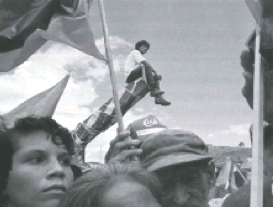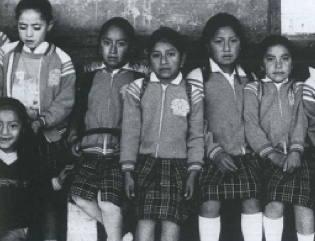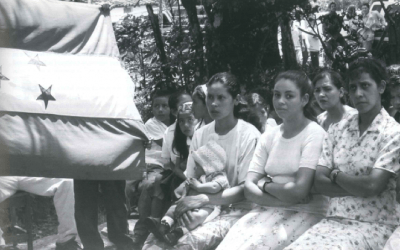Gender, Sexuality and Democracy
The post-dictatorial cultural transformations of Chile, Argentina, and Uruguay bring to the fore gender and sexuality as critical to discussion and reflection on the development of democracy. Family codes, abortion, divorce, adoption, inheritance laws, the role of the Church, sexual rights are all at stake. Awareness about issues of social tolerance and pluralism regarding women and sexual minorities in these societies is increasing, as reflected in recent studies on public opinion. Without dismissing the many problems and prejudices that are still standing, the apparent change in public opinion bears in important ways on the prospects for more truly participatory democratic cultures.
To facilitate such a discussion, Harvard Professors Bradley Epps and Luís E. Cárcamo-Huechante, with Raquel Olea and others from the Universidad de Santiago, are organizing a conference/workshop to take place in Santiago de Chile, from August 20-22, 2003. The event will bring together scholars, critics, writers, and performance artists from both the United States and Latin America (primarily Chile, but also Argentina, Uruguay, Bolivia, and Peru) who work on issues of gender and sexuality in the fields of literature, visual arts, and cultural critique.
“We aim at once to deepen and to expand the ongoing dialogue on the North/South locations of theoretical and critical discourses,” Epps said. “There are arguably few areas of inquiry as morally, politically, and culturally charged as that of gender and sexuality. Taboos, prejudices, and biases obtain in insistent yet variegated ways in both the North and the South. That said, the study of gender and sexuality tends to be informed by academic trends from metropolitan centers of power and knowledge, a phenomenon that doubtless merits examination.” For Cárcamo-Huechante, “contemporary literary and cultural production of the region constitutes a fascinating discursive arena in which new cultures of gender and sexuality are registered and imagined.”
Among the participants will be Sylvia Molloy, Raquel Olea, Diamela Eltit, Pedro Lemebel, Carmen Berenguer, Francine Masiello, Daniel Balderston, Diana Sorensen, Jean Franco, Nelly Richard, Olga Grau, Licia Fiol Matta, and Guadalupe Santa Cruz.
Fall 2002
Bradley Epps is a professor in the Department of Romance Languages and Literatures.
Related Articles
Civic Pride
A passion for planting trees awoke in me,” Don Juan Morales explained to me next to his numerous wood-burning kilns. I had asked him why he had become a member of the…
Children and Democracy
Children and youth are citizens. It’s important to keep that fact in mind, and to understand that political participation in a democratic society involves much more than voting. In our work we…
Central America’s Citizens
English + Español
When auto mechanic Pedro Pirir got fired from the repair shop where he’d worked for years, his reaction of outrage and shame made him want to complain to the authorities. He’d heard his…




